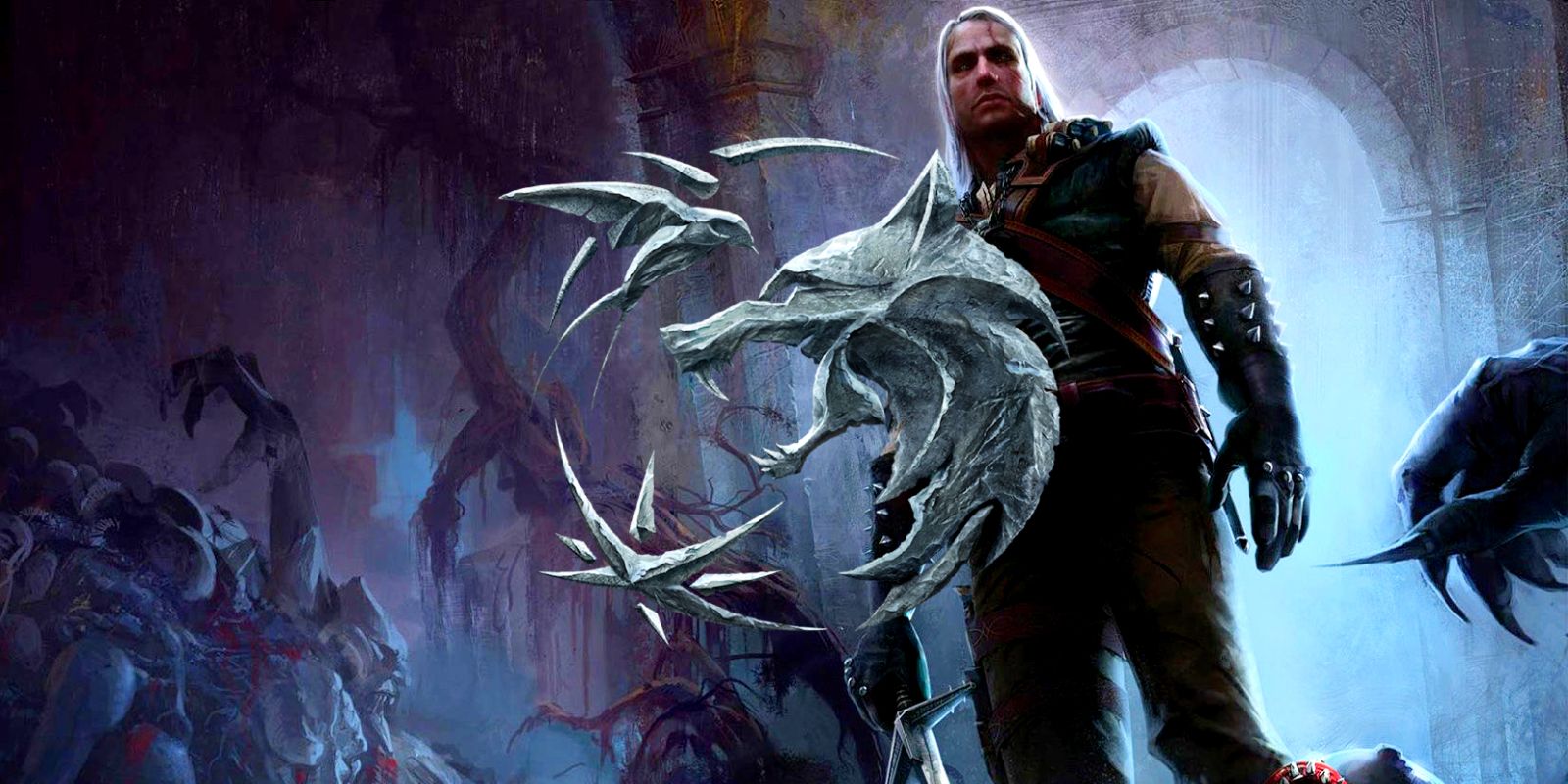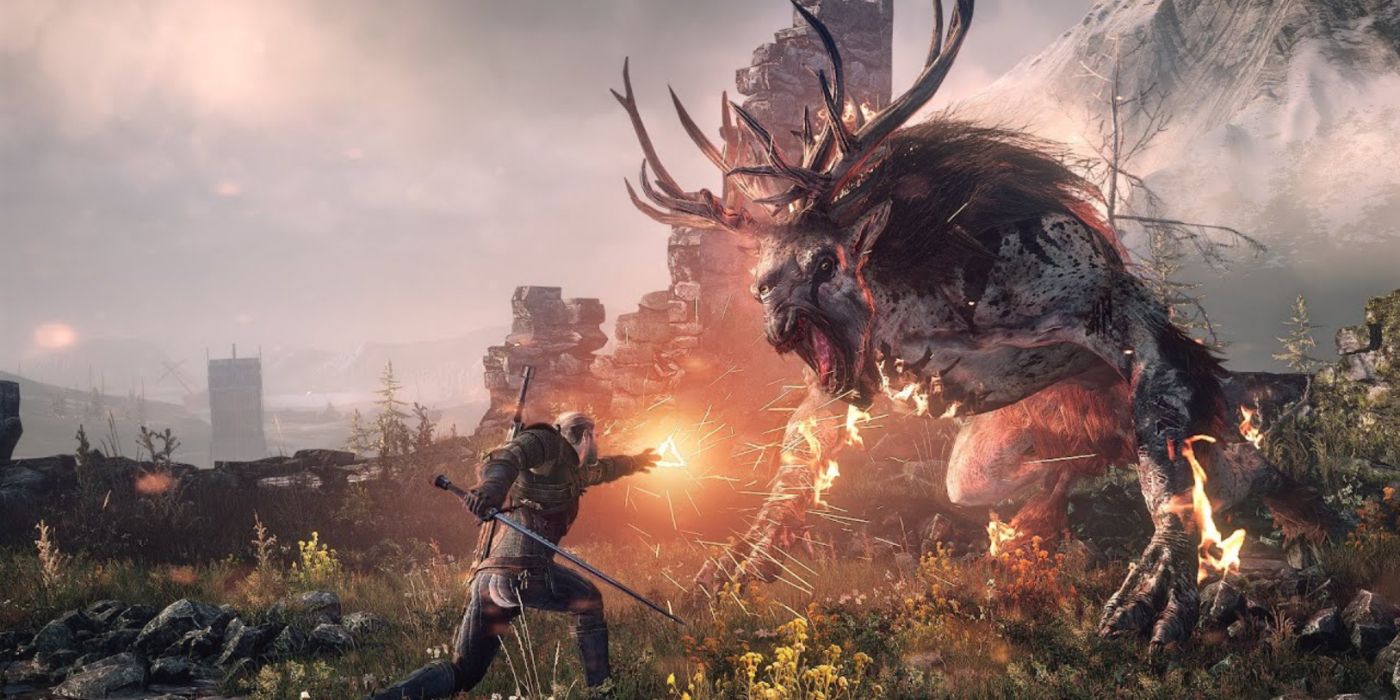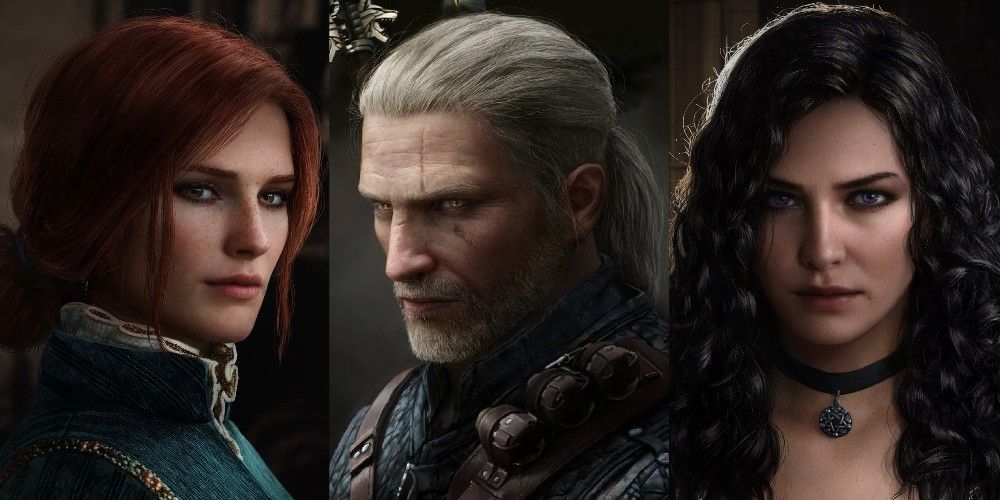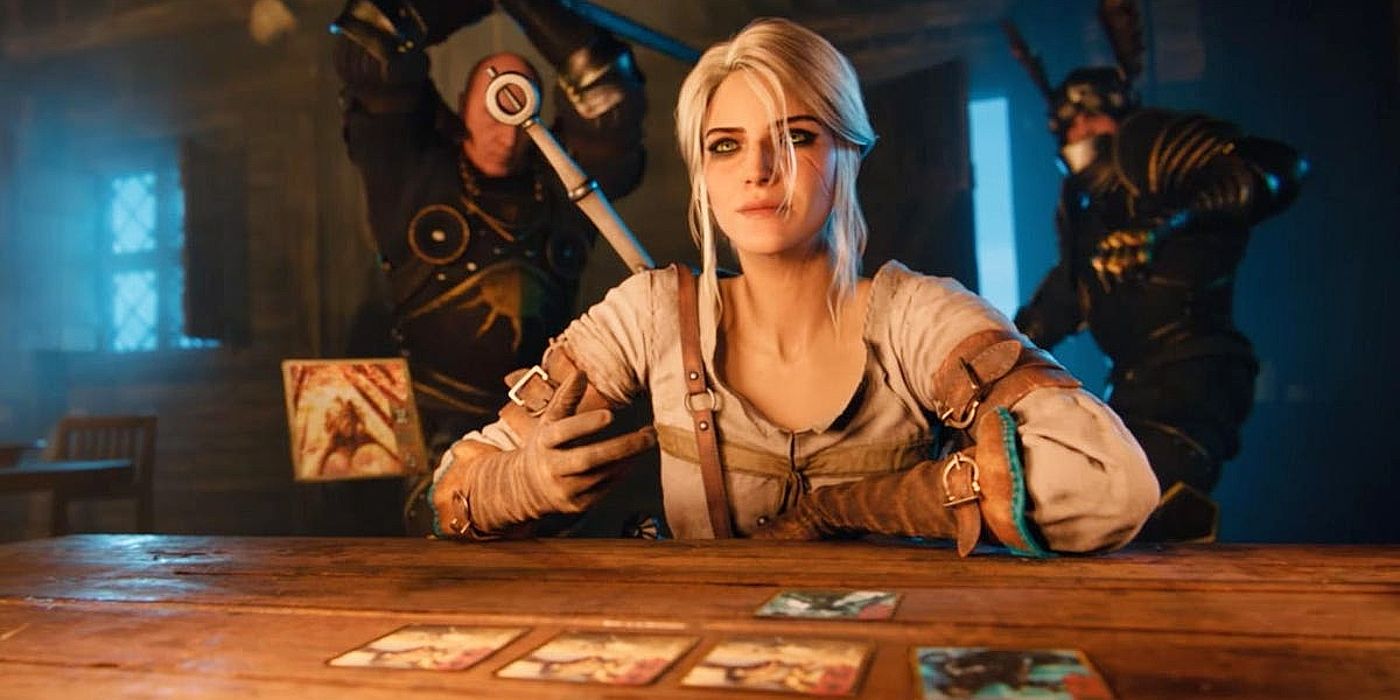Changes made in The Witcher Remake could draw inspiration from many of the franchise's entries since the original game's release, but the Netflix television series may have the most lessons to teach. Something of a black sheep in the series, Polish developer CD Projekt Red's 2007 release based on Andrzej Sapkowski's fantasy novels played with some interesting ideas, but The Witcher's age shows. Later games, The Witcher 2: Assassins of Kings and The Witcher 3: Wild Hunt greatly improved on the original's gameplay and writing, and it's time for the first entry in the trilogy to be brought up to that quality.
In 2019, another entry in the growing franchise reared its head - Netflix's television adaptation. While gameplay changes to can make The Witcher series actually fun to replay, The Witcher Remake's writing and story can learn plenty from the show. While the games and the show cover different stories and periods of time (in order to tell their own stories, the games are set after the events of Sapkowski's novels, while the Netflix show is its own take on said novels' events) the style, themes, and characters are often shared, and re-evaluating these aspects could pay off dramatically for The Witcher Remake.
The Witcher Remake Needs A Tighter Narrative Focus
The plot of 2007's The Witcher is both remarkably simple and surprisingly difficult to follow. While several factors contribute to this, the most notable is the immense amount of lore and world-building that the game throws at the player. Longtime fans of Sapkowski's books will likely be able to untangle the complex web of places, characters, and events, but players new to the franchise might struggle to understand even The Witcher's best quests. Among all of this chaos, it can be difficult to discern between plot-relevant details and those that are merely the result of a frankly over-developed world.
This issue is ultimately a matter of scale - The Witcher is too small a game for the world it inhabits, and referencing that world muddles the story. The later games improve on this issue, representing the game's world more broadly by simply having more content. The remake could follow suit, but doing so would greatly expand the game beyond its original scale.
Instead, The Witcher Remake should look to the Netflix adaptation's approach to this problem. The first season of the series tells three separate atemporal stories, yet manages to keep an immensely tight focus. Geralt's episodic adventures provide context and character but are ultimately side stories in The Witcher's larger narrative, which casts Ciri as the central protagonist. For the most part, Geralt's portion of each individual episode is a self-contained narrative (most of which are adaptations of stories in Sapkowski's The Last Wish) that require little outside context. Characters and events that suggest the larger world are used strategically, almost always tying into the immediate narrative rather than leaving an open-ended hook. The Witcher Remake would do well to follow this example, cutting out extraneous details and reinforcing the context essential for understanding the game's plot.
The Witcher Remake Needs To Write Romance Better
While many RPGs feature NPCs the player can pursue romantic or sexual relationships with, The Witcher trilogy has a particular legacy stemming from the first game in the series. While pursuing romance with Triss and Yennefer in Witcher 3 is, for the most part, handled well, 2007's The Witcher treats Geralt's romantic dalliances quite poorly. Each time Geralt has sex with a woman, the player collects a so-called "Romance Card" to mark the occurrence. This system is crass and disrespectful, reducing many of the game's female characters to trophies to be won by tying an in-game collectible reward to sleeping with them.
Removing this tasteless system would no doubt improve The Witcher Remake, but the game doesn't need to avoid sexual topics altogether. Again, the Netflix adaptation sets a strong example to follow. Both men and women are given agency around sex and romance within the narrative, and Geralt never acts solely in pursuit of sex. These elements are, in truth, difficult to bring to a video game, where the only real agency belongs to the player, whose motivation may be difficult to predict. However, good writing and meaningful choices in The Witcher's story can reframe the game's romances, changing them from little more than side quests into an organic part of the game's narrative.
The Witcher Remake Needs To Break From Continuity
2007's The Witcher exists in a weird place, chronologically. It takes place in the same continuity as, and shortly after, the events of Sapkowski's final book, The Lady of the Lake. Yet, it undoes a fairly definitive ending for Geralt (and Yennefer) in order to tell more stories with him. Fifteen years later, the stories have continued even further, with the events of The Witcher leading to two sequels. The result is a game that is both beholden to the past and a foregone conclusion. The Witcher sets up unfinished plot threads its sequels resolve, and The Witcher Remake must do the same. King Foltest must die, and Geralt must meet the Wild Hunt. Similarly, the circumstances at the start of the game can't meaningfully change, either.
Or, this would be the case if the developers behind The Witcher Remake followed convention. Fans of the franchise are likely aware that while Netflix's The Witcher retells stories from Sapkowski's original books, it takes significant creative liberties with both character and plot. From the circumstances of Ciri and Geralt's initial meeting to major pieces of Yennefer's story, the television series seems intent on creating its own continuity independent of restrictions imposed by the rest of the franchise.
In theory, The Witcher Remake could do the same. It likely won't - while CDPR is developing a new Witcher saga, the purpose of a remake is to modernize a title, not retell its plot. Still, The Witcher's story could absolutely benefit from a number of small changes, and more significant story changes might yield an even better narrative. Whether any sort of story change is in the works remains to be seen, but The Witcher Remake will absolutely improve on the original game regardless.




